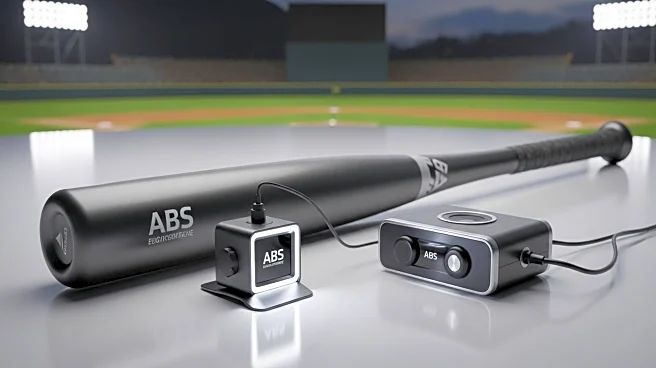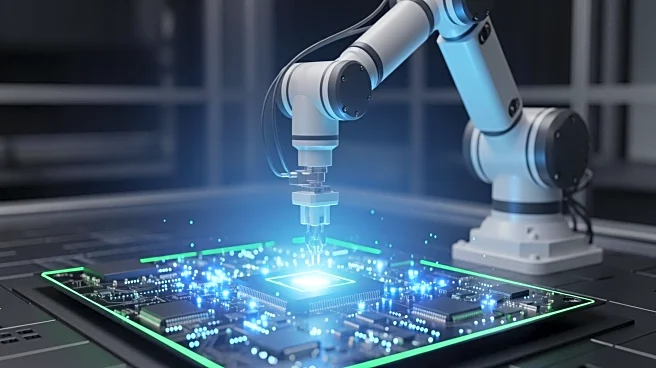What's Happening?
Major League Baseball (MLB) is set to fully implement the automated ball-strike (ABS) system in 2026, a move that could significantly benefit St. Louis Cardinals outfielder Lars Nootbaar. Known for his exceptional plate discipline, Nootbaar ranks in the 100th percentile for chase rate and 98th percentile for walk rate, demonstrating his ability to avoid swinging at pitches outside the strike zone. The ABS system will allow players to challenge calls, potentially altering Nootbaar's approach, especially with two strikes. Nootbaar expressed excitement about the change, noting that it could allow hitters to trust their judgment more and challenge unfavorable calls, which could lead to more favorable outcomes during games.
Why It's Important?
The introduction of the ABS system represents a significant shift in how baseball games are officiated, potentially reducing human error in ball and strike calls. For players like Lars Nootbaar, who excel in plate discipline, this system could enhance their performance by allowing them to challenge calls that they perceive as incorrect. This change could lead to more accurate outcomes in games, affecting team strategies and player statistics. The ripple effect of this system might also influence how hitters approach at-bats, potentially leading to more walks and fewer strikeouts, thereby impacting game dynamics and player evaluations.
What's Next?
As MLB prepares for the full implementation of the ABS system, teams and players will likely begin adjusting their strategies to incorporate the new technology. Players may focus on improving their ability to judge pitches accurately, knowing they have the option to challenge calls. Teams might also invest in training and technology to better prepare their players for the ABS era. The system's impact on game outcomes and player statistics will be closely monitored, potentially leading to further adjustments in rules and technology in the future.
Beyond the Headlines
The adoption of the ABS system raises questions about the role of human umpires in baseball. While the system aims to reduce errors, it also challenges the traditional aspects of the game, where human judgment plays a crucial role. This technological shift could spark debates about the balance between technology and tradition in sports, influencing how other leagues approach officiating. Additionally, the system's impact on player psychology and game strategy could lead to long-term changes in how baseball is played and perceived.









